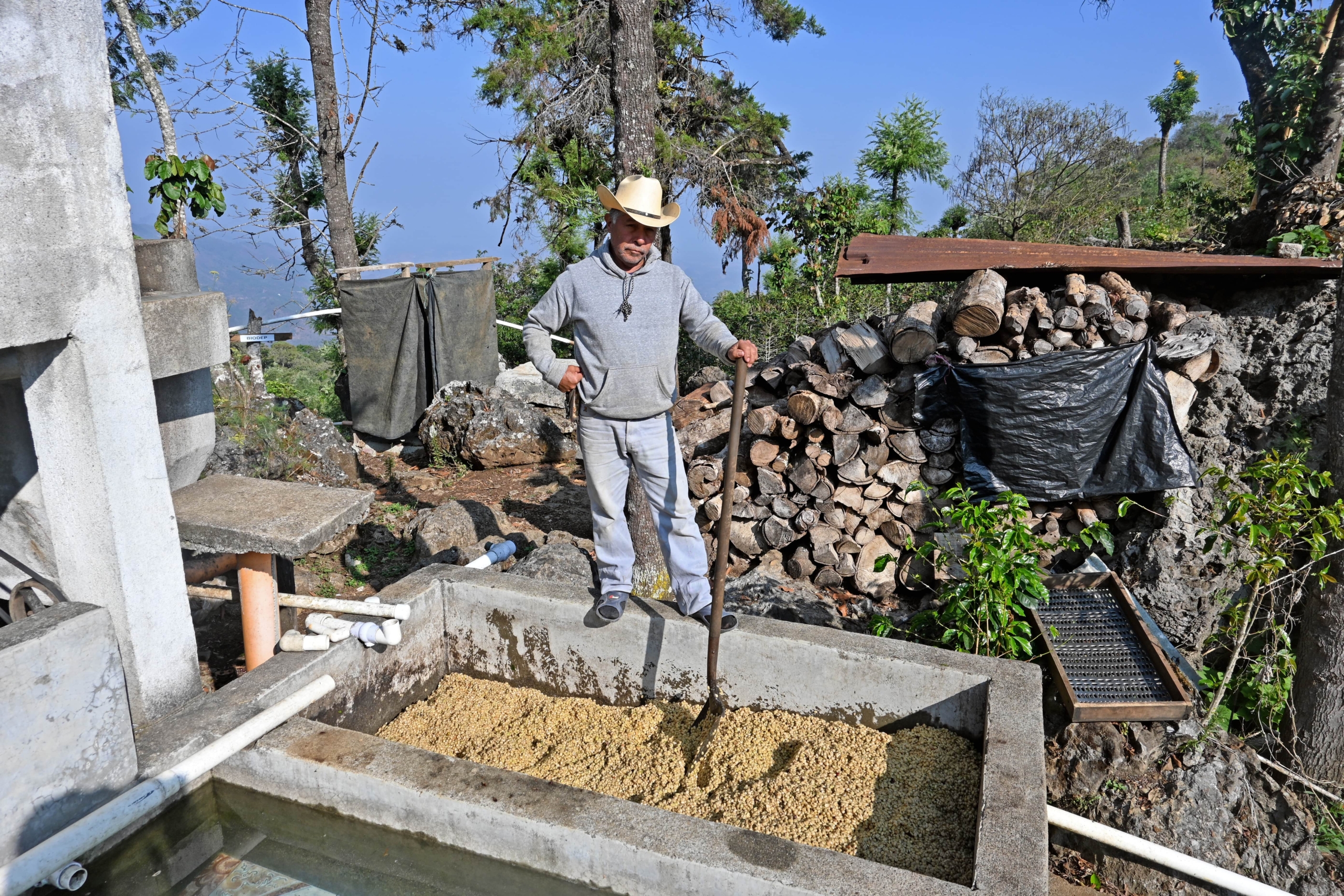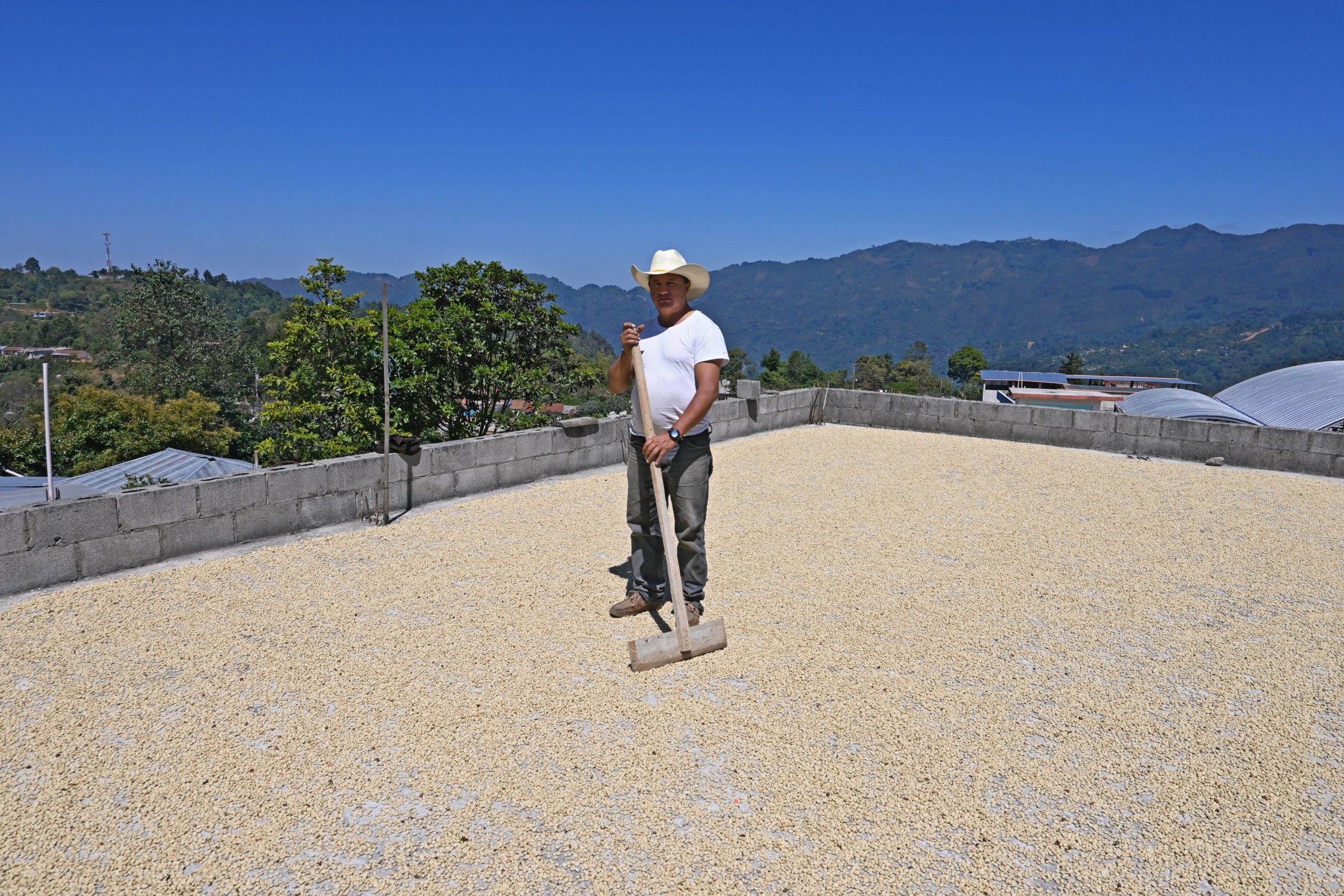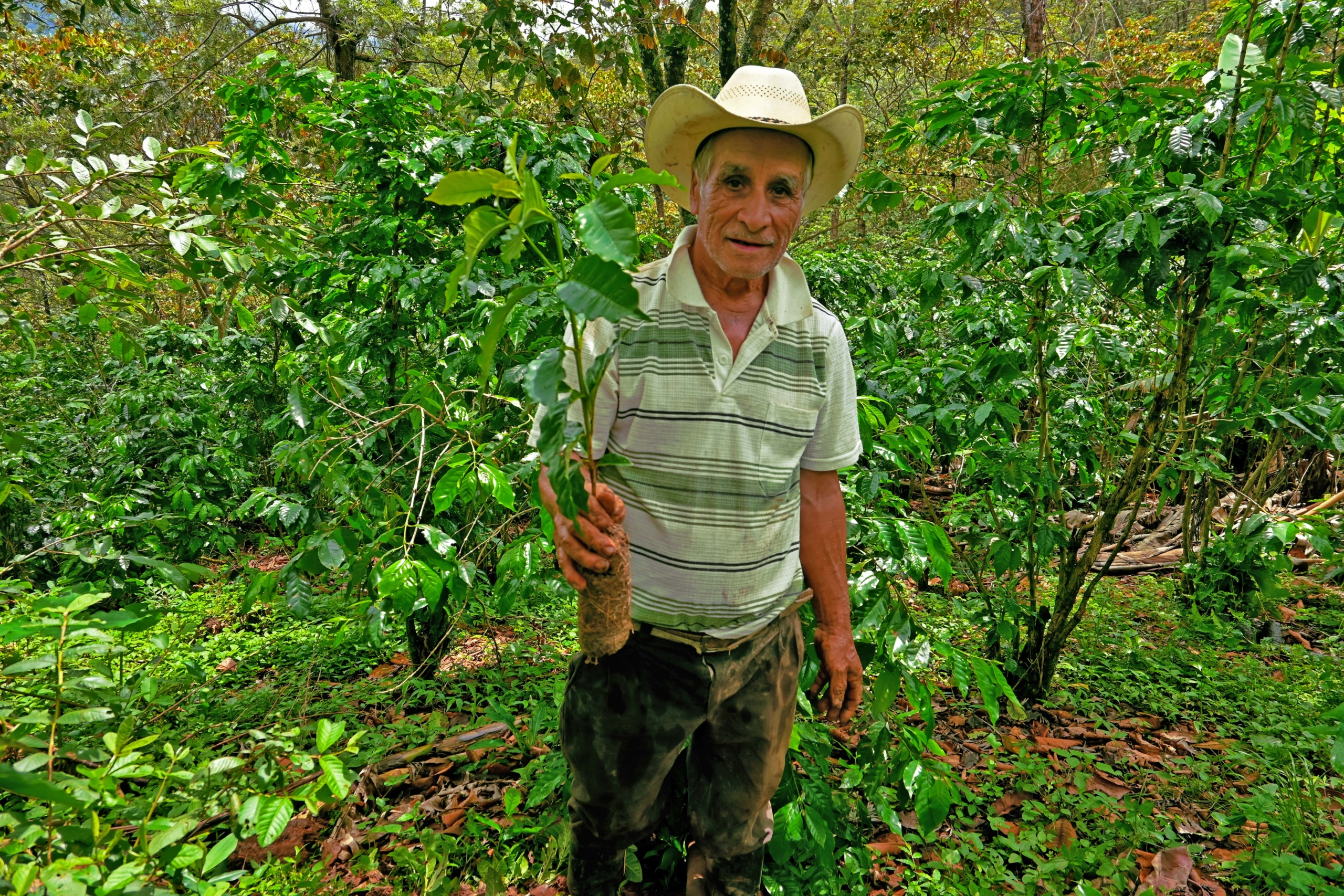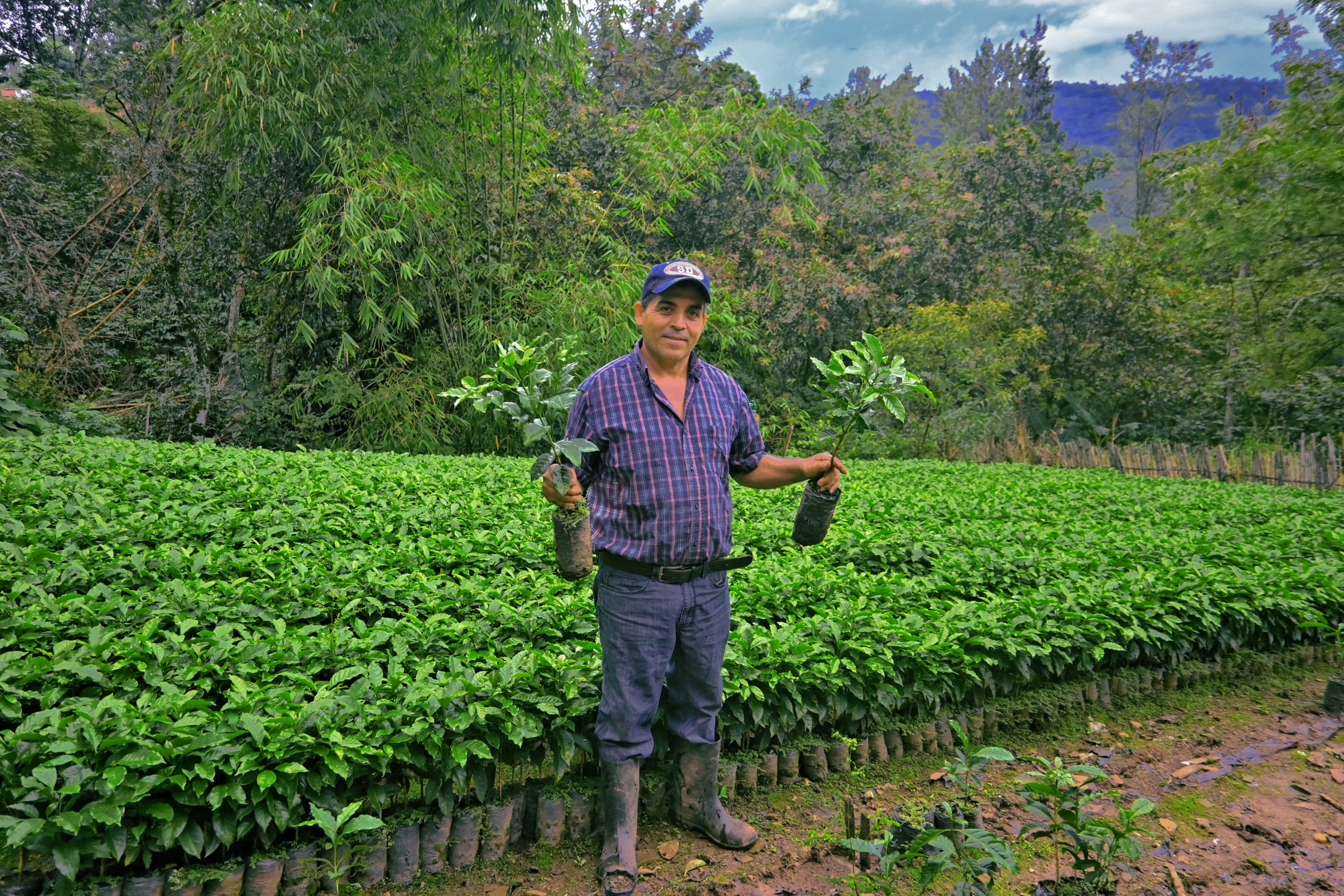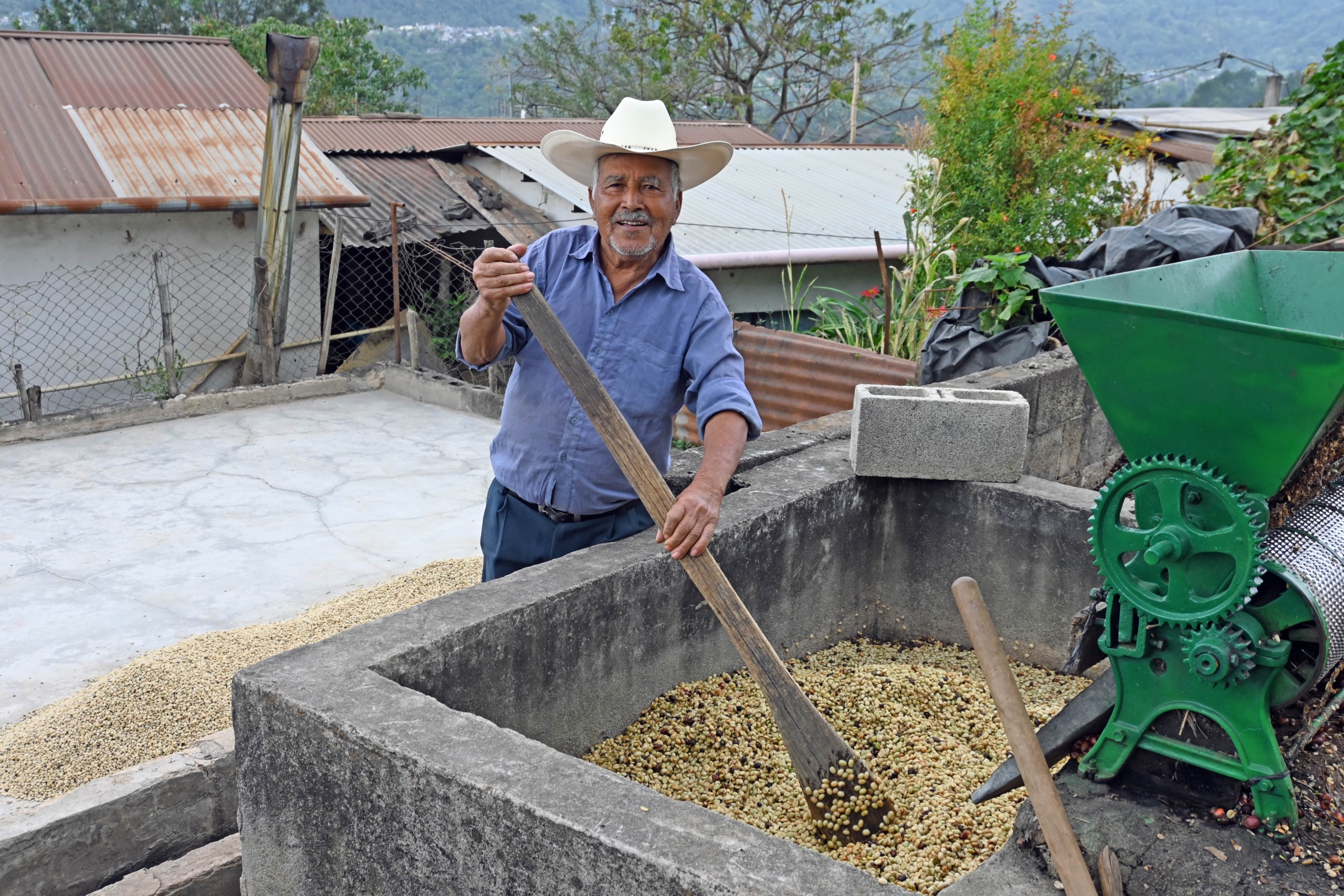Coffee was introduced to Guatemala in the 18th century by missionaries and colonists, quickly becoming the country’s main export. Currently, Guatemala is the 10th-largest coffee producer worldwide with nearly half of its beans destined for the U.S..
Guatemala’s growing success comes thanks, in part, to its distinct and idyllic micro-climates; mild, subtropical climate; nutrient-rich volcanic soil; consistent temperatures; and a generous rainfall that creates lush growing conditions. Combined with mountains rising over 4,000 masl, Guatemala’s eight distinct growing regions each provide a dream terroir for coffee. The main producing regions are Atitlán, Antigua, Fraijanes Plateau, Cobán rainforest, Huehuetenango Highlands, San Antonio, San Marcos and Nuevo Oriente.
About AAPICAFI
The Association of Beekeepers and Coffee Growers (AAPICAFI) was founded in 2013 by coffee producers in the Municipality of Unión Cantinil, department of Huehuetenano, Guatemala. Today the association has 200 coffee producers from 40 communities across 6 municipalities in Huehuetenango. These producers own small plots or family farms, averaging 1.5 hectares per family with coffee being their main source of income.
AAPICAFI is Fairtrade and Organic certified, ensuring that its producers meet rigorous standards for environmental sustainability and social responsibility. Beyond certification, AAPICAFI is committed to fostering the socio-economic development of its members through sustainable, self-managed growth—working to secure better prices and improved conditions for smallholder producers.
